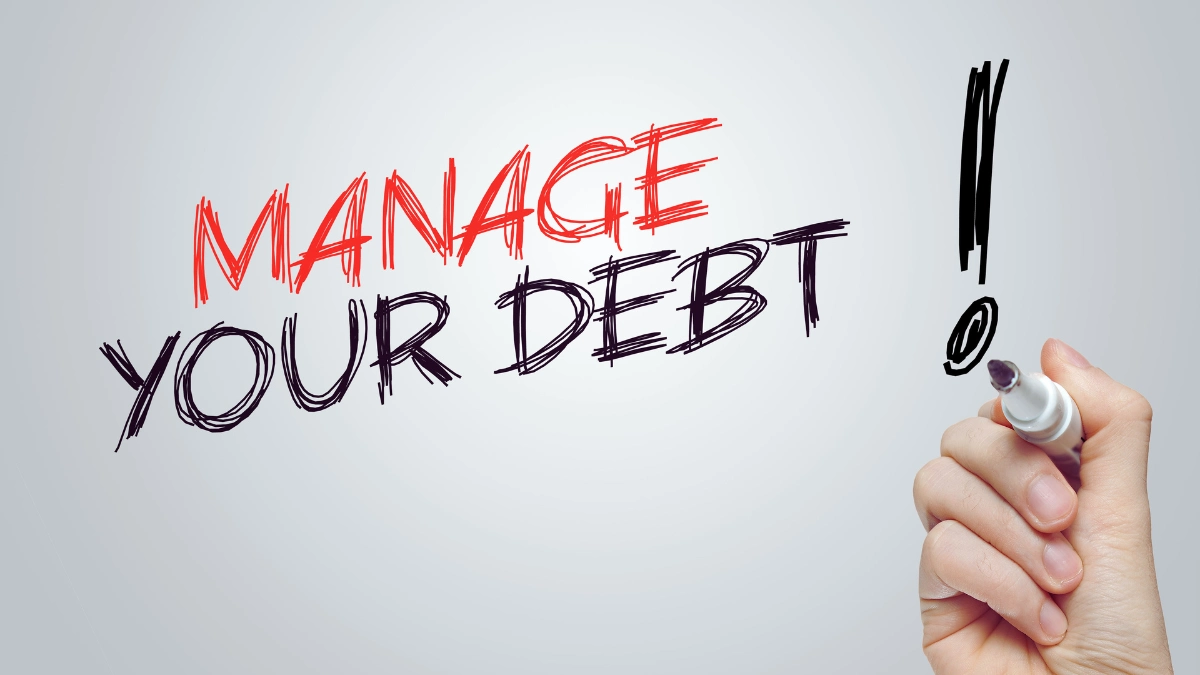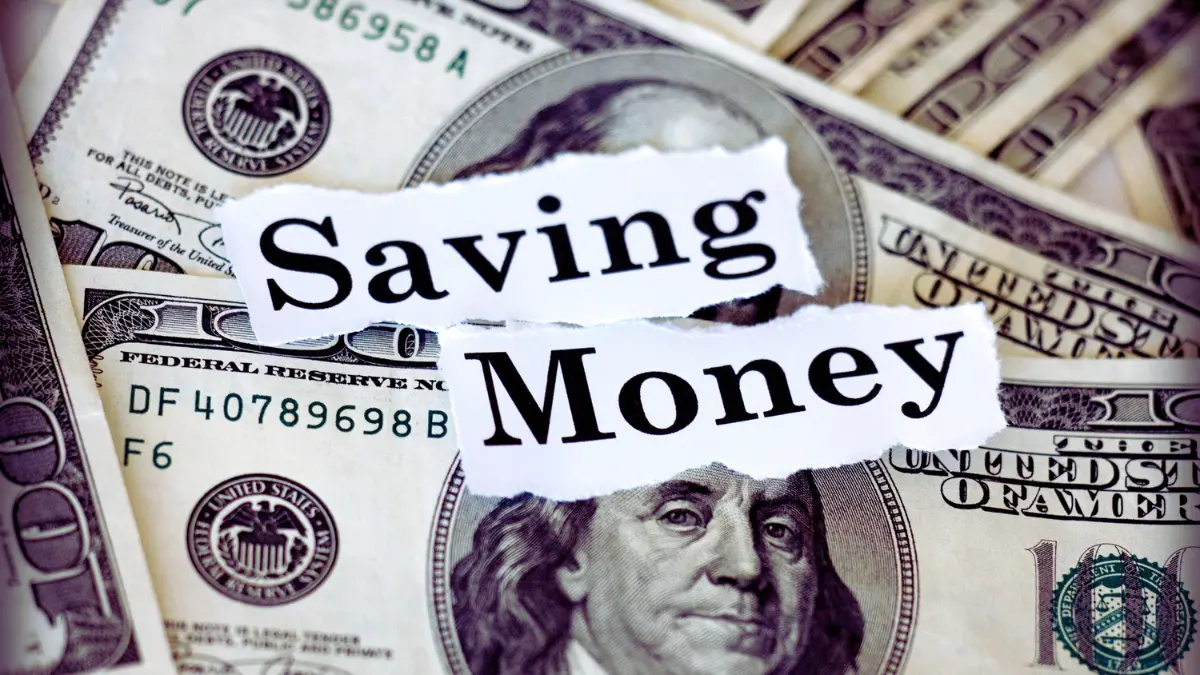You work hard. You earn more than your parents did at your age. But you’re still broke.
You can’t afford a house. Student loans crush you every month. Your savings account stays empty no matter how much you try.
And everyone keeps saying it’s your fault. “Stop buying avocado toast.” “You’re just bad with money.”
But here’s the truth: Baby boomers control $82 trillion in wealth—more than double Gen X’s $42 trillion and four times millennials’ $16 trillion.
Millennials own just 9.4% of total U.S. wealth. Boomers control 51.8%. Both groups have similar population sizes.
The game changed. The rules are different now. And nobody told you.
This article shows you exactly why you’re struggling and what you can actually do about it in 2025.
Problem #1: Your Paycheck Is Bigger, But Your Wallet Is Emptier

Your salary looks good on paper. You make more than your parents did at your age, even after adjusting for inflation.
So why are you broke?
Americans today have 63% more purchasing power than people did in 1973. That sounds great. But it’s a lie.
The Numbers Don’t Lie
Here’s what happened since 1973:
- Median income increased 1,015%
- Inflation only rose 586%
- But home prices jumped 1,045%
- College tuition up 177% for public schools
- Private college tuition up 158%
Your income grew slower than the stuff you actually need to live. That’s the gap.
In 1985, a typical worker needed 30 weeks of pay to cover basic family expenses. By 2018, those same expenses took 53 weeks. There are only 52 weeks in a year.
You’d literally need to work more weeks than exist to keep up.
You’re Already Trying
72% of Gen Z took action to improve their finances last year:
- 51% put money in savings
- 24% paid down debt
- 64% cut back on expenses
- 41% ate out less
You’re doing everything right. But you’re running on a treadmill that keeps speeding up.
The good news? In 2022, millennials’ wealth jumped to 37% above expectations. You’re not doomed. However, you need to understand what you’re fighting against.
Problem #2: Why You Can’t Afford A House

First-time homebuyers make up just 24% of the market now. That’s the lowest number since tracking started in 1981.
The Brutal Reality of 2025 Housing
Here’s what you’re facing:
- Median home costs more than $422,000
- Mortgage rates sit near 7%
- You need a six-figure income just to qualify
In the 1960s, the minimum wage was $1 per hour. The average house costs $11,000. Two teenagers could graduate from high school, start working, and own a home within five years.
Today? Minimum wage is $7.25. Houses cost $422,000.
You’d need to work 58,000 hours at minimum wage just for the house. That’s 28 years of full-time work with no other expenses.
Even Renters Are Drowning
- 70% of Gen Z and millennial renters struggle to afford housing
- 41% of homeowners in this age group can’t easily make their mortgage payments
- 1.6 million expected households never formed in 2024
- 49% of young adults lived with their parents in 2021 (up from 39.9% in 2000)
Living in your parents’ basement isn’t a meme anymore. It’s survival.
Only 21% of millennials think they can afford a home in 2025. Last year, 52% thought they could. Hope died in one year.
Real examples: Samantha Garcia saved $1,000 per month and still had to leave LA for Redding to buy a $335,000 home. Dominic Azpeitia moved from Southern California to Phoenix for a $520,000 home.
That’s your reality. Leave everyone you know, or never own a home.
Problem #3: Student Loans That Never End

College was supposed to help. Instead, you got a financial ball and chain.
The Debt Keeps Growing
Gen Z averages $22,948 in student loan debt. That’s 13% higher than millennials had at the same age. But here’s what hurts most: Gen Z pays an average of $526 per month on student loans. The overall average is just $284.
The Crisis In Numbers
- 43.6 million Americans owe student loans
- The average balance is $38,000 per person
- Total debt exceeds $1.7 trillion
- The average borrower takes 20 years to pay off loans
In 1978, the minimum wage was $2.65 per hour. Public college tuition costs $688 per year. Today, minimum wage is $7.25. Public college costs $9,212 per year.
If minimum wage had kept up with tuition, you’d make $36 per hour. Instead, you make $7.25. You’re earning five times less than you should be.
How It Destroys Your Life
- 46% of millennial borrowers cut back on essentials to make payments
- 53% of millennials delayed major life decisions because of loans
- 59% feel stress or anxiety about their debt
- 57% say they wouldn’t have taken on so much debt if they could do it over
Your entire life is on hold because you went to college. And you can’t sell your degree if you can’t afford it.
Problem #4: Credit Cards Became Survival Tools

You didn’t plan to carry credit card debt. The car broke down. Medical bills hit. Rent went up. You charged it because you had no other option.
The Debt Burden By Generation
Gen Z carries the highest average personal debt, at $ 90,000+. Compare that to:
- Millennials: $59,181
- Gen X: $53,255
Gen Z is the youngest. How do they owe the most? Because you’re using debt to survive, not to buy luxuries.
How The Trap Works
- You spend $100 on groceries and charge it
- Next month, you still don’t have $100
- You pay the minimum
- Now that $100 becomes $120 with interest
- Then $144. Then more.
You’re caught in a system designed to keep you paying forever.
The Mental Weight
- 52% of Gen Z think about debt most or all of the time
- Gen Z credit card delinquencies hit a three-year high
- 57% buy themselves a small “treat” weekly (and 59% say this leads to overspending)
When rent takes 50% of your income, student loans take 15%, and groceries cost 20% more than last year, what’s left? Nothing. So you charge it.
Problem #5: Baby Boomers Won The Economic Lottery

Your parents worked hard. But they also had something you don’t: perfect timing.
They were born right after World War II. America’s economy exploded. Manufacturing grew. Jobs multiplied. Wages rose. They got in when the getting was good.
The Wealth Gap Is Massive
Boomers built a collective net worth of $82 trillion. Compare that to:
- Gen X: $42 trillion (less than half)
- Millennials: $16 trillion (one-fourth)
- Boomers hold 54% of all stocks, worth over $25 trillion
- Millennials own just 8.2% of stocks, worth $3.9 trillion
- Boomers own nearly 3 in 10 large homes
- Millennials with kids own just 14.2%
They Changed The Rules After They Won
When boomers were young, they voted for:
- Free or cheap college
- Family support programs
- Strong social welfare systems
Now they’re old. They vote for:
- Lower taxes on wealth
- Better pensions
- Higher retirement benefits
They pulled up the ladder behind them.
Boomers paid $688 per year for public college (adjusted for inflation). You pay $9,212. They got cheap education, then voted to defund it.
More Education, Less Value
Nearly 40% of Americans over 25 have a bachelor’s degree. Only 25% of boomers had one at the same age.
When everyone has a degree, each degree loses value. You’re more educated than your parents, but competing against millions of other educated people.
Entry-level jobs now require two PhDs, three years of experience, and an Olympic medal. Barely exaggerated.
Problem #6: The Great Wealth Transfer Won’t Save You

$124 trillion will transfer from baby boomers to younger generations by 2048. Sounds good, right?
The Three Problems
Problem #1: Most People Get Nothing
- Only 38% of Gen Z expect to receive money from their parents
- That means 62% get nothing
- Wealthy boomers leave money to their wealthy kids
- Inheritance makes inequality worse
Problem #2: You’ll Be Old When You Inherit
- Gen Z will inherit around age 50
- Boomers bought homes at 25
- You’ll have spent three decades struggling first
Problem #3: It Won’t Fix The System
- If housing stays expensive, education stays unaffordable, and healthcare keeps rising, you’ll burn through that money fast
- Inheritance is a band-aid on a broken system
For most of you, inheritance is a fantasy that keeps you hoping instead of demanding systemic change.
Solutions: What You Can Actually Do Right Now
Enough bad news. Here’s what actually works in 2025.
Solution #1: Fix Your Housing Problem

If you can move:
- Research affordable markets near major cities
- Look at smaller cities with lower costs
- Check property taxes and total monthly costs
- Work with local agents who know first-time buyer grants
- Real example: Samantha Garcia left LA for Redding and bought for $335,000
Can’t move? Try these:
- Co-buy with friends or family (this is becoming normal)
- Pool resources and split costs
- Consider multi-generational living
- Try house-hacking (buy a duplex, live in one side, rent the other)
Can’t buy at all?
- Focus on building savings (55% of Gen Z don’t have three months saved)
- Start small. Save $50 per paycheck
- Automate it so you don’t think about it
Solution #2: Attack Your Debt Strategically

Priority order:
- High-interest debt first (credit cards at 18-25% interest)
- Student loans, second (use income-driven repayment plans)
- Other debt last
Student loan strategies:
- Income-driven repayment plans adjust to your income
- Some loans are forgiven after 20-25 years
- Refinance if you have good credit and a stable job
- Every extra $100 per month shaves years off your timeline
Solution #3: Increase Your Income

Negotiate your salary:
- Research market rates (Glassdoor, Payscale, LinkedIn)
- Document your achievements with numbers
- Bring facts: “I increased sales by 15%”
- Only one in five feel confident negotiating—learn to be one of them
Side hustle if needed:
- Freelance in your field
- Drive for rideshare companies
- Sell stuff online
- Tutor kids
- Every extra $500 per month adds up
Solution #4: Save Smarter, Not Harder

Smart saving strategies:
- Open a high-yield savings account (4-5% interest vs 0.01%)
- Automate savings on payday
- Pay yourself first
- Start investing early ($100/month at 8% = $150,000 in 30 years)
Take advantage of free money:
- Max out your 401(k) match if available
- If the employer matches 5%, contribute 5%
- Use apps that round up purchases and invest the difference
21% of Gen Z invested in the stock market last year. You’re learning. Keep going.
Solution #5: Change Your Mindset

Forget the old path:
- College → house → marriage → kids → retirement by 30
- That timeline doesn’t work anymore
Create your own path:
- Maybe you rent forever, but build wealth through investments
- Maybe you live with roommates until 35 and save aggressively
- Maybe you move abroad, where the cost of living is 70% lower
Stop comparing yourself to your parents’ timeline. They had a different economy. 72% of Gen Z took action to improve their finances. You’re adapting.

